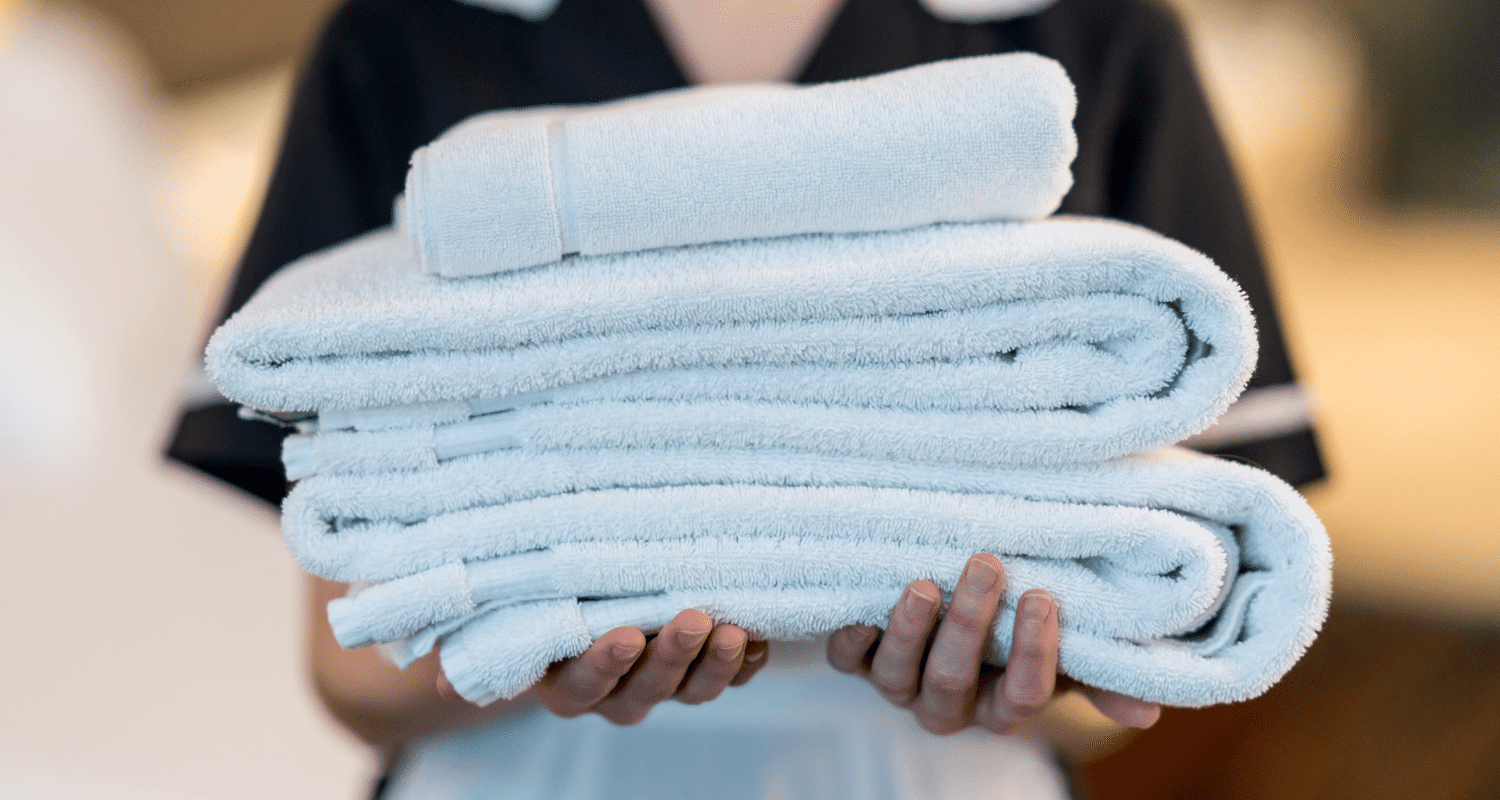How Much Do Hotel Housekeepers Make? A Comprehensive Guide
Imagine waking up in a pristine hotel room, with crisp sheets and a spotless bathroom – the unsung heroes behind this immaculate experience are the hardworking hotel housekeepers. Their dedication to cleanliness and attention to detail play a crucial role in creating a comfortable and welcoming environment for guests.
If you’re short on time, here’s a quick answer to your question: Hotel housekeepers in the United States typically earn an average annual salary of around $25,000 to $30,000, with hourly wages ranging from $10 to $15 per hour.
However, the actual compensation can vary significantly based on factors such as the hotel’s location, size, and star rating, as well as the housekeeper’s experience and job responsibilities. In this comprehensive guide, we’ll delve into the intricacies of hotel housekeeper salaries, exploring the factors that influence their earnings, the typical job duties, and the potential for career growth within the hospitality industry.
Understanding the Role of Hotel Housekeepers
Job Responsibilities
Hotel housekeepers play a crucial role in ensuring the cleanliness and comfort of guest rooms and public areas. Their primary responsibilities include making beds, vacuuming floors, cleaning bathrooms, and replenishing amenities such as towels and toiletries.
However, their duties extend far beyond these basic tasks. They are responsible for maintaining the overall appearance and hygiene of the hotel premises, which is essential for creating a welcoming and inviting atmosphere for guests.
In addition to cleaning rooms, housekeepers are often tasked with inspecting for any damages or maintenance issues and reporting them to the appropriate personnel. They may also be required to assist with laundry services, ensuring that linens and towels are properly cleaned and restocked.
Furthermore, many hotels have implemented green initiatives, and housekeepers play a crucial role in promoting sustainable practices by properly sorting and disposing of waste and conserving resources such as water and electricity.
Physical Demands
The job of a hotel housekeeper is physically demanding. It involves a significant amount of bending, lifting, and pushing, as they are required to move heavy furniture, lift mattresses, and carry heavy loads of linens and cleaning supplies.
Additionally, they often work in tight spaces, such as bathrooms and closets, which can be ergonomically challenging. Proper training and the use of appropriate equipment, such as carts and ergonomic tools, are essential to minimize the risk of injuries.
Importance in the Hospitality Industry
The hospitality industry thrives on providing exceptional guest experiences, and hotel housekeepers play a vital role in achieving this goal. A clean and well-maintained room is often the first impression a guest has of a hotel, and it can set the tone for their entire stay.
According to a survey by the American Hotel & Lodging Association, cleanliness is the top priority for hotel guests, with 89% of respondents citing it as the most important factor when choosing a hotel.
Furthermore, the attention to detail and customer service provided by housekeepers can significantly impact guest satisfaction and loyalty. A friendly and attentive housekeeper can enhance the overall guest experience, leading to positive reviews and repeat business.
In fact, according to a study by Forbes, 67% of customers are willing to pay more for a great experience. 😊
Factors Affecting Hotel Housekeeper Salaries
When it comes to determining how much hotel housekeepers make, several key factors come into play. From the location and cost of living to the hotel’s star rating and size, these elements can significantly impact a housekeeper’s earning potential. Let’s delve into each of these factors in detail:
Location and Cost of Living
One of the most significant determinants of a hotel housekeeper’s salary is the location and cost of living in a particular area. Housekeepers working in major metropolitan cities like New York, San Francisco, or Los Angeles can expect to earn higher wages compared to those employed in smaller towns or rural areas.
This is primarily due to the higher cost of living associated with these urban centers. According to PayScale, the average hourly rate for hotel housekeepers in New York City is around $15, while in smaller cities like Des Moines, Iowa, it’s closer to $10 per hour.
Hotel Star Rating and Size
The star rating and size of a hotel can also influence a housekeeper’s salary. Generally, luxury hotels with higher star ratings tend to pay their housekeepers more than budget or mid-range hotels. This is because luxury hotels often have higher standards for cleanliness and attention to detail, requiring more experienced and skilled housekeepers.
Additionally, larger hotels with more rooms and amenities may offer higher wages to attract and retain top talent.
According to a study by Hotel News Resource, the average hourly wage for housekeepers in 5-star hotels is around $15, while those working in 3-star hotels earn closer to $11 per hour.
Experience and Seniority
Like many professions, a hotel housekeeper’s experience and seniority can play a significant role in their earning potential. Housekeepers with more years of experience and proven track records are often valued more highly by employers and can command higher salaries.
Additionally, housekeepers who have taken on supervisory roles or have specialized training (e.g., in eco-friendly cleaning practices or handling hazardous materials) may be eligible for higher pay.
According to Indeed, the average salary for a hotel housekeeper with less than 1 year of experience is around $24,000 per year, while those with 5-9 years of experience can earn an average of $28,000 annually.
Union Representation
Hotel housekeepers who are represented by unions often enjoy better wages and working conditions compared to their non-unionized counterparts. Unions can negotiate higher pay rates, better benefits, and improved workplace safety standards on behalf of their members.
However, the impact of union representation can vary depending on the strength of the union and the specific collective bargaining agreements in place.
According to a report by the Bureau of Labor Statistics, unionized hotel housekeepers earn an average of 25% more than their non-unionized counterparts.
It’s important to note that while these factors can significantly influence a hotel housekeeper’s salary, there can be variations even within the same location or hotel category. Employers may also consider factors such as job performance, work ethic, and customer satisfaction ratings when determining compensation.
Ultimately, a combination of these elements will shape the earning potential for hotel housekeepers in any given region or establishment.
Average Hotel Housekeeper Salaries by Region
When it comes to the hospitality industry, hotel housekeepers play a crucial role in maintaining a clean and welcoming environment for guests. However, their salaries can vary significantly depending on the region they work in.
Let’s dive into the average hotel housekeeper salaries across different parts of the United States.
Northeast
In the Northeast region, which includes states like New York, Massachusetts, and Connecticut, hotel housekeepers tend to earn higher wages compared to other parts of the country. According to PayScale, the average hourly rate for hotel housekeepers in the Northeast is around $13.50.
This translates to an annual salary of approximately $28,080 for full-time workers. However, in major cities like New York City, salaries can be even higher, with some housekeepers earning upwards of $35,000 per year.
Midwest
The Midwest region, encompassing states like Illinois, Ohio, and Michigan, generally offers lower wages for hotel housekeepers compared to the Northeast. According to data from the Bureau of Labor Statistics, the average hourly wage for hotel housekeepers in the Midwest is around $11.50, which equates to an annual salary of roughly $23,920 for full-time workers.
It’s worth noting that salaries can vary based on the specific city or state, with some areas offering higher or lower wages.
South
In the Southern region of the United States, which includes states like Texas, Florida, and Georgia, hotel housekeeper salaries tend to be on the lower end of the spectrum. According to Indeed, the average annual salary for hotel housekeepers in the South is around $22,000.
However, there can be significant variations within the region, with some cities like Miami or Atlanta offering higher wages due to the higher cost of living and demand for hospitality services.
West
The Western region, which includes states like California, Nevada, and Washington, offers a wide range of salaries for hotel housekeepers. In major cities like San Francisco or Los Angeles, where the cost of living is higher, hotel housekeepers can earn upwards of $35,000 per year, according to Glassdoor.
However, in other parts of the West, such as smaller towns or rural areas, salaries may be closer to the national average of around $24,000 per year.
It’s important to note that these figures are just averages, and actual salaries can vary based on factors such as the hotel’s size, location, amenities, and the housekeeper’s experience and responsibilities.
Additionally, some hotels may offer benefits like health insurance, paid time off, or bonuses, which can further impact a housekeeper’s overall compensation package. 👍
If you’re considering a career as a hotel housekeeper, it’s always a good idea to research the specific salaries and job prospects in your desired location. And remember, while the pay may not be the highest, the satisfaction of providing a clean and welcoming environment for guests can be truly rewarding!
😊
Earning Potential and Career Advancement
Beyond the base salary, hotel housekeepers can explore various opportunities for career growth and increased earning potential. With dedication and hard work, they can climb the ranks and take on supervisory roles, attend specialized training programs, or even secure coveted positions at prestigious luxury hotels.
Let’s delve into these possibilities!
Supervisory Roles
As housekeepers gain experience and demonstrate exceptional performance, they may be eligible for promotion to supervisory roles. A housekeeping supervisor, also known as an executive housekeeper, oversees the daily operations of the housekeeping department.
According to PayScale, the average annual salary for an executive housekeeper in the United States is around $45,000, with top earners making over $60,000. In this role, they are responsible for managing staff schedules, ensuring quality standards are met, and liaising with other departments to ensure smooth operations.
Training and Certifications
To enhance their skills and increase their marketability, housekeepers can pursue various training and certification programs. Organizations like the Educational Institute of the American Hotel & Lodging Association (EI) offer certifications in areas such as Guest Room Attendant, Supervisor in Housekeeping, and Executive Housekeeper.
These certifications not only demonstrate a housekeeper’s commitment to their profession but can also lead to higher earning potential and better job prospects. 😊
Opportunities in Luxury Hotels
While the average salary for housekeepers may seem modest, those working in luxury hotels can expect to earn significantly higher wages. According to the U.S. Bureau of Labor Statistics, the top 10% of hotel housekeepers earn an average of $27,810 annually.
These lucrative positions are often found in high-end establishments that cater to affluent clientele and demand impeccable service standards.
For example, housekeepers at the renowned Four Seasons Hotels and Resorts can expect to earn well above the industry average. The company is known for its commitment to excellence and providing exceptional guest experiences.
Similarly, The Ritz-Carlton, consistently ranked among the best luxury hotel chains, offers competitive compensation packages to attract and retain top talent in the housekeeping department.
In addition to higher salaries, luxury hotels often provide generous benefits, such as health insurance, retirement plans, and discounted rates for employees and their families. Can’t you just imagine the perks of working at a luxurious resort, surrounded by opulence and catering to the world’s elite?
😍 It’s an enticing prospect for those seeking a rewarding and potentially lucrative career in the hospitality industry.
Benefits and Perks for Hotel Housekeepers
Working as a hotel housekeeper can be a demanding job, but it also comes with a range of benefits and perks that make the role more attractive. From health insurance and retirement plans to discounted hotel rates and paid time off, these perks can provide housekeepers with a sense of security and appreciation for their hard work.
Health Insurance and Retirement Plans
Many hotels offer their housekeepers access to health insurance plans, which can be a significant advantage, especially for those who might not have access to affordable coverage otherwise. According to a survey by the U.S. Bureau of Labor Statistics, around 55% of hotel housekeepers receive medical benefits from their employers.
Additionally, some hotels may provide retirement plans, such as 401(k) or pension plans, to help housekeepers save for their future.
Discounted Hotel Rates
One of the most appealing perks for hotel housekeepers is the opportunity to enjoy discounted hotel rates for themselves and their families. Many hotels offer significant discounts on room rates, allowing housekeepers to experience the very same luxury accommodations they help maintain.
This perk can be especially valuable for those who enjoy traveling or have family members visiting from out of town.
According to a survey by Hotel Management, 92% of hotels offer employee discounts on room rates, with some providing discounts of up to 50% or more. Imagine being able to stay at a five-star resort for a fraction of the cost – it’s a perk that can make the job even more rewarding!
Paid Time Off and Sick Leave
Like many other professions, hotel housekeepers are often entitled to paid time off and sick leave. This benefit allows them to take a well-deserved break or address personal or family matters without worrying about losing income.
According to the Bureau of Labor Statistics, around 70% of hotel housekeepers receive paid vacation days, and 60% receive paid sick leave.
Having access to paid time off and sick leave can be a game-changer for housekeepers, as it allows them to maintain a healthy work-life balance and take care of their well-being. Whether it’s taking a family vacation or recovering from an illness, these benefits can provide peace of mind and financial security.
While the job of a hotel housekeeper can be physically demanding, the benefits and perks offered by many hotels make it a more attractive and rewarding career choice. From health insurance and retirement plans to discounted hotel rates and paid time off, these perks can help housekeepers feel valued and supported in their roles.
So, next time you stay in a hotel, remember to appreciate the hard work of the housekeepers who make your stay comfortable and enjoyable – they deserve all the benefits and perks they receive (and more! ).
Conclusion
Hotel housekeepers play a vital role in ensuring the comfort and satisfaction of guests, yet their contributions often go unnoticed. While their salaries may not be as high as some other professions, the job offers a stable income and opportunities for growth within the hospitality industry.
As we’ve explored, factors such as location, hotel rating, and experience can significantly impact a housekeeper’s earnings. However, beyond the financial compensation, many housekeepers find fulfillment in providing exceptional service and contributing to the overall guest experience.
For those considering a career in hotel housekeeping, it’s essential to understand the physical demands and responsibilities involved. With dedication, hard work, and a commitment to excellence, housekeepers can advance into supervisory roles or explore opportunities in luxury hotels, potentially increasing their earning potential.
Ultimately, the hospitality industry relies heavily on the tireless efforts of housekeepers, and recognizing their value through fair compensation and benefits is crucial for attracting and retaining talented individuals in this essential role.






